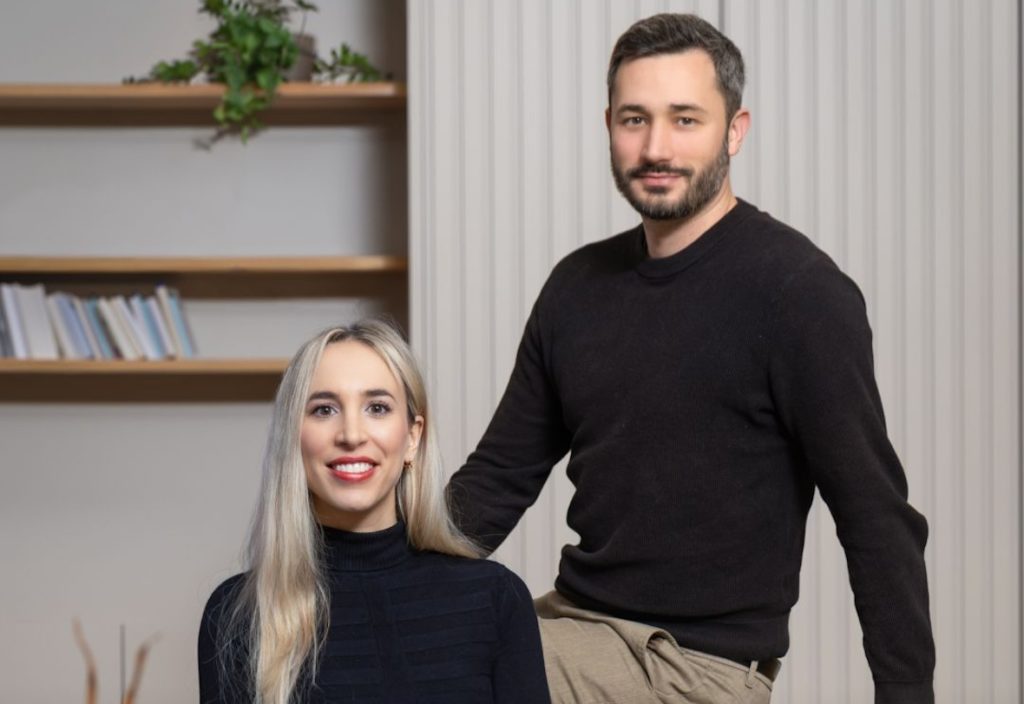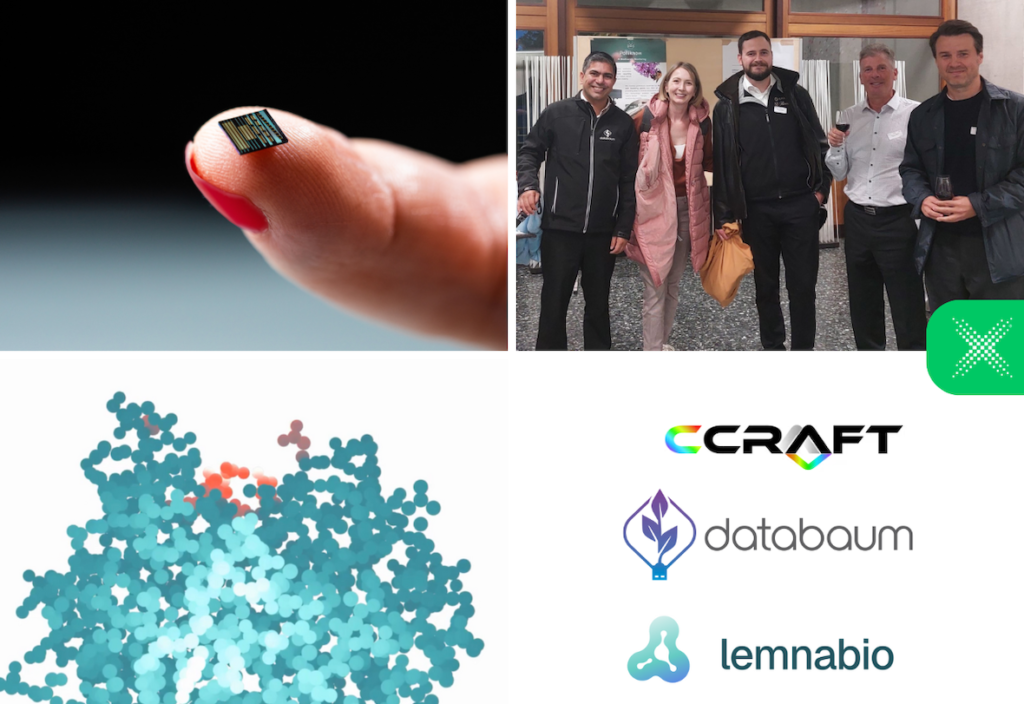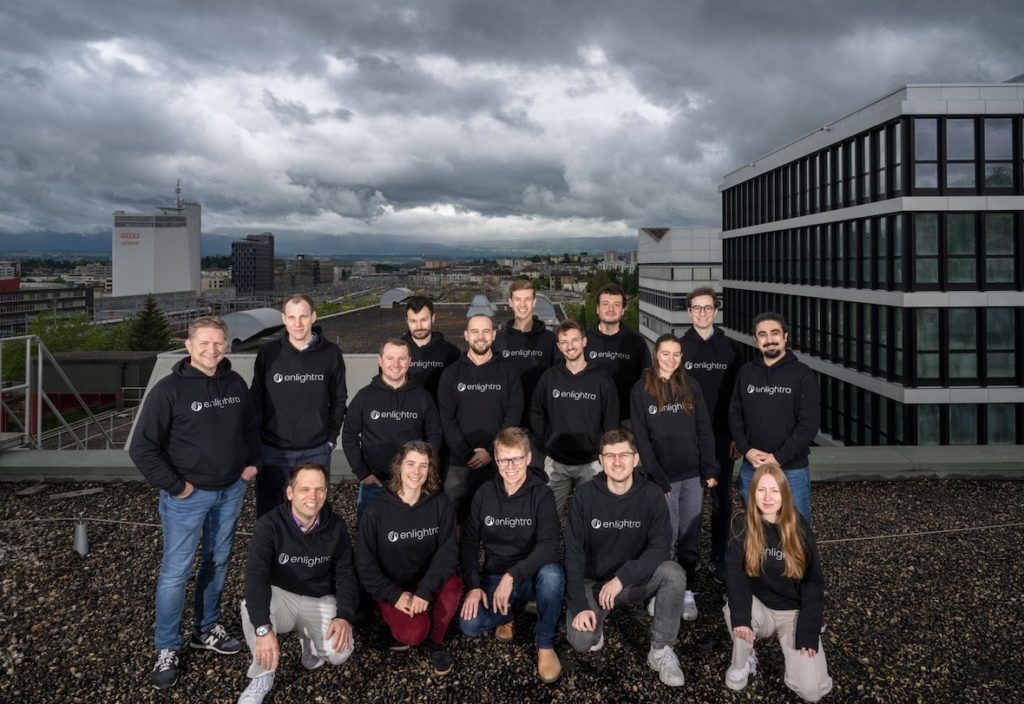
Intensive mask use: the solution of a Swiss start-up
23 April 2020

In the midst of the COVID-19 pandemic, the Swiss start-up Helvitek Labs, based in Lausanne, has developed an add-on for protective masks to prevent bruising due to prolonged daily use by healthcare workers. Pictures circulated everywhere: hospital staff with bruised faces due to the compulsory daily use of surgical and/or FFP2 masks. This new reality due […]
In the midst of the COVID-19 pandemic, the Swiss start-up Helvitek Labs, based in Lausanne, has developed an add-on for protective masks to prevent bruising due to prolonged daily use by healthcare workers.
Pictures circulated everywhere: hospital staff with bruised faces due to the compulsory daily use of surgical and/or FFP2 masks. This new reality due to the COVID-19 pandemic prompted the team from Helvitek Labs, a start-up based at the EPFL Innovation Park in Lausanne, to react immediately.
Since 2018, the company has been developing an urban anti-pollution mask which is filtering, breathable, elegant, but above all comfortable. The team has recently decided to use its know-how to think of a solution for caregivers. Its members focused on the development of a morphological facial structure that adapts to medical masks, which are not designed for prolonged wear. “We have brought together a group of specialists who have all collaborated together: our design office in Zürich, BMCO, Professor Bruno Bürgisser of the Fribourg University of Engineering and Architecture and members of Inov3, our industrialization partner based in Lausanne,” explains Roberto Costa, co-founder of Helvitek Labs. The group is solution-oriented and works “in a start-up spirit”.
Critical help from Vaud’s economic and innovation partners
However, there are development costs, including the cost of designing a mold to test the product. It is the Foundation for Technological Innovation (FIT) which made it possible to solve this problem, by allocating, “in record time”, a loan of 100,000 Swiss francs to the young company, funds without which the project could not have succeeded. The Office for Economic Affairs and Innovation (SPEI) also supported the project. Innovaud, the innovation promotion agency of the canton of Vaud, helped Helvitek Labs make itself known and to receive the financial help from the FIT. Within a month, the morphological facial structure was ready. Developed in medical elastomer, it is made in Switzerland. It remains to be tested, which the Lausanne University Hospital agreed to do throughout April. As a result, in a few weeks and thanks to this incredible surge in efficiency and solidarity, the solution should be available to the healthcare workers of several medical establishments in the region.
A Swiss solution, developed in a very innovative region
For the moment, the start-up is focusing on Switzerland. “Our idea was to solve a local problem. Our structure does not yet allow us to support international development, although of course we can imagine a partnership to supply foreign markets. We already have been approached by an American company,” explains Roberto Costa.
For the young company, which has interrupted the production of its anti-pollution masks, the experience has not been a waste of time, on the contrary. “This project acted as a catalyst. It allowed us to speed up our industrialization processes, to get in touch with or to secure partners with whom to work afterwards.” Helvitek Labs does not plan to grow faster than expected. “Our plans are unchanged, we will keep our initial ambition, which is to launch the industrialization of our anti-pollution mask, while ensuring the production of morphological structures. If this latest project brings us more liquidity than expected, it will be re-injected into research and development to develop other projects related to protection and masks,” explains Théo-Tim Denisart, co-founder of Helvitek Labs. One thing, however, has profoundly changed: the context. “Before, during pitches to present our product, we needed a lot of time to explain to our interlocutors the interest of wearing a mask: particles, pollution, health concerns… Now, we can avoid these explanations. Wearing a mask has become a priority.”
This article was originally published on www.innovaud.ch

